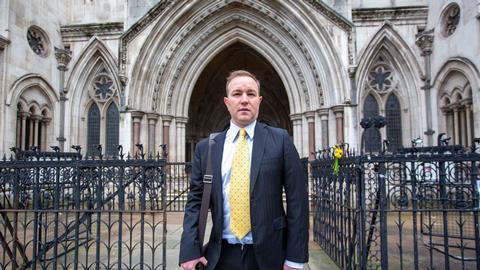Juries should be told how much an expert witness is being paid and how many times they have appeared for either party, MPs heard this week.
A panel chaired by former solicitor general Lord Garnier (Edward Garnier KC) considered the use of expert evidence in the justice system at an event organised by the All Party Parliamentary Group on Miscarriages of Justice.
The call for jurors to be given more information came from Tom Hayes, the former City trader whose LIBOR rate-rigging convictions were quashed by the Supreme Court earlier this year. Alluding to his trial, Hayes declared that there was ‘a complete inequality of arms in relation to experts’. While Hayes had none, the prosecution had two, one of whom gave ‘extremely damning testimony’.
Hayes added: ‘In my opinion, one thing that should be disclosed to the jury, and I don’t think I’ve ever heard anyone actually recommend this, is how often an expert has been instructed by both sides. So if an expert has been instructed 30 times by the prosecution, then the jury should know that. The jury should also know how much they have been paid. As a juror, I would think that someone who gave evidence for both sides equally would probably be more credible than someone that gave evidence solely for the CPS.’
Carole McCartney, professor of law and criminal justice at the University of Leicester, said forensic scientists who give evidence in trials face consequences if they are found to have acted wrongly. ‘If they are seen to be making errors or there is criticism of their judgement, they are reported to the regulator. They are heavily regulated and do suffer consequences if they make mistakes.’
Earlier this year, a report by the Westminster commission on forensic science made 34 recommendations to improve the delivery of forensic science services and the use of forensic evidence. Recommendations included making experts nationally available to the defence. The report also called for improvements in science communication in court.
This week’s event came amid growing scrutiny of the role of experts after the Post Office scandal and controversy over the conviction of nurse Lucy Letby.
Stephanie Davies, former senior coroner’s officer, inquisitorial death investigator and death scene interpreter, said an inquisitorial approach to cases would work better than the current adversarial system.
In 2011, a Law Commission report on expert evidence in criminal proceedings recommended a new admissibility test for expert evidence, new guidance for judges for applying the test, and a proper framework for screening expert evidence at the admissibility stage. Two years after the report was published, the Ministry of Justice indicated it did not intend to act on most of the recommendations.



























